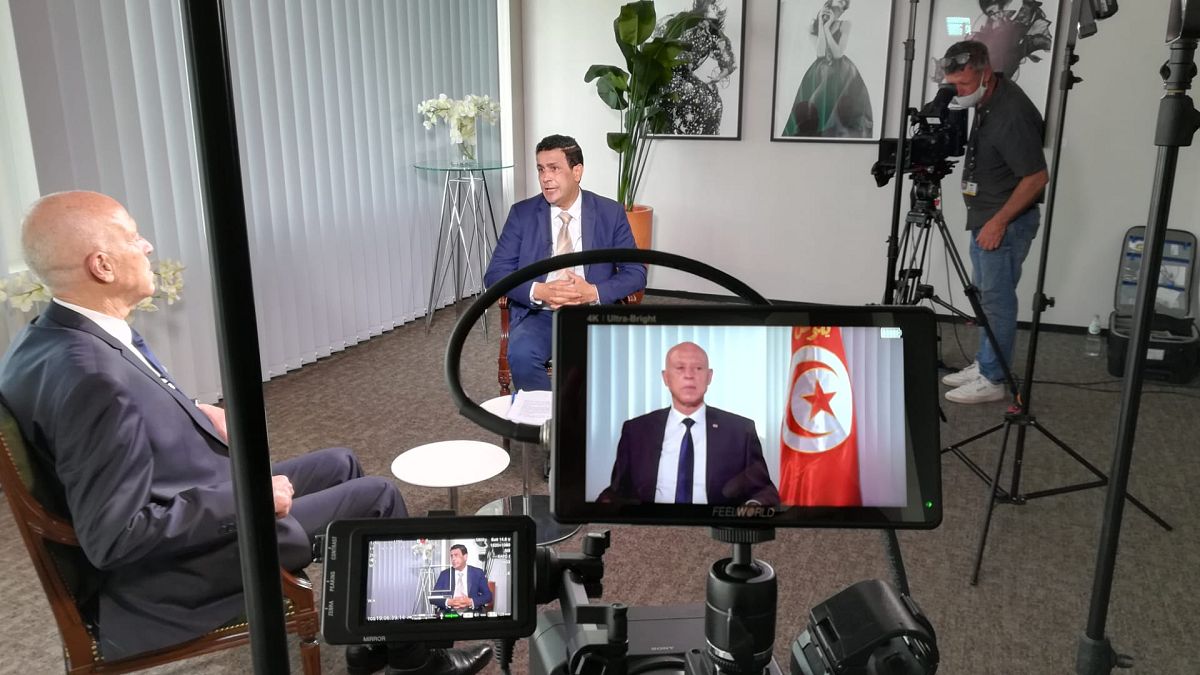The EU is currently working on a deal with Tunisia to offer economic help in order to stop migrants coming illegally into Europe.
More must be done to tackle the criminal networks in Europe that encourage illegal migration, Tunisia's president has told Euronews.
Kaïs Saïed said the issue is a complicated one but that the problem doesn't just lie within his country.
He argued that European gangs involved in human trafficking are incentivising people to risk their lives and cross the Mediterranean and must therefore be addressed.
"Who receives them in the north [of Tunisia] when they turn to working in the fields or in factories and work on the so-called black or paperless markets? Who exploits them and who benefits from it? It's here in Europe. So, it is necessary to combat the networks that traffic human beings within Europe also," Saïed told Euronews.
Saïed was on a two-day visit to Brussels to attend the EU-Tunisia Association Council meeting.
He met personally with European Commission and European Council presidents Ursula von der Leyen and Charles Michel during his trip, where he told them that migration cannot be approached by Brussels from just a European perspective. It must be looked at from both sides, he said.
For Saïed, Europe must look at what pushes young people to migrate to its shores from Africa and other countries.
But he also says Brussels must take into account the positive side of migration.
"We must also talk about regular migration from academics and other high-skilled workers, for example. In the past year, nearly five hundred doctors went to Europe. They are an absolutely invaluable human resource," Saïed told Euronews.
"We must address the issue from all angles, not just one. One view is limited to migrants who have no job opportunities and who have no hope of a life in their own countries... the issue cannot be addressed unilaterally, nor can it be addressed from just a security perspective."
According to the United Nations, more than 13,000 people have arrived on the Italian coast since January, 15% of them being of Tunisian nationality.
The EU is currently working on a deal with Tunisia to offer economic help in order to stop migrants coming illegally into Europe.
